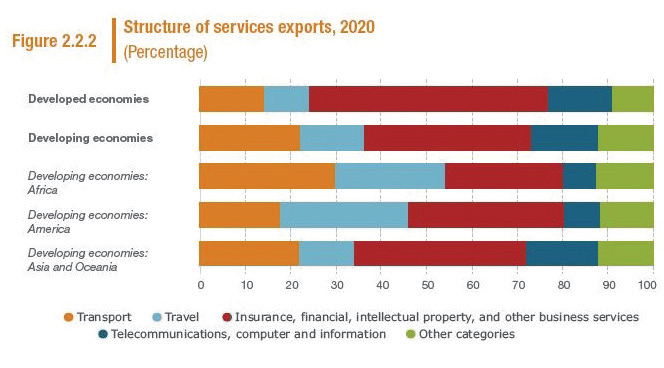Malawi records deficit in services trade—figures
Malawi recorded a deficit in services trade of $123 million (about K101 billion) in 2020, a situation which can jeopardise the country’s aspirations of becoming a competitive and visible exporter of services by 2026.
Published figures from the United Nations Conference on Trade and Development (Unctad) show that in the year under review, the country exported $169 million (K139 billion) worth of services trade and imported $292 million (K240 billion) of services in trade.

With a deficit of $123 million, Malawi became one of the least performers among its neighbours.
In its 2021 Handbook of Statistics, Unctad observes that it remains difficult for the developing world to compete in technology-intensive services markets, except for certain Asian economies.
Reads the report in part: “Given the weaker resilience of services trade, travel in particular, to the [Covid-19] pandemic conditions, exports of services lost more ground than goods exports in 2020.
“International trade in services, more so than goods, was heavily influenced by the Covid-19 pandemic. In 2020, the exports of travel and transport retracted across the globe.
Trade in services records the value of services exchanged between residents and non-residents of an economy, including services provided through foreign affiliates established abroad.
Malawi aspires to become a competitive and visible exporter of value-adding and poverty-reducing labour and tourism services through the National Services Export Strategy II which runs from 2021 to 2026 through increased supply of tradable services, promoting services market access and enhanced economic sustainability and inclusivity.
The strategy recognises that while appreciating the critical role of services in facilitating the production of goods and other services, and in promoting both domestic and foreign trade, isolating services exports is critical in emphasising the significance of promoting the regional and global competitiveness of the country’s tradable services.
“In so doing, the strategy provides a framework for maximising the generation of foreign exchange from the prioritised services exports, while promoting inclusive growth and poverty reduction,” reads the strategy in part.
Ministry of Trade figures indicate that between 1980 and 2018, the value of Malawi’s exports of goods and services rose from $327.1 million (K269 billion) in 1980 to $1.2 billion (K988 billion) in 2018.
Of this, merchandise exports have grown from $295.3 million (K243 billion) to $1.1 billion, while services exports have risen from $31.8 million (K26 billion) to $157.5 million (K130 billion).
Ironically, services exports have grown faster by 6.4 percent than merchandise exports by 5.1 percent during the review period.
Ministry of Trade director of trade Clement Kumbemba said that services trade has the potential to increase Malawi’s domestic and export performance, with the sector contributing 52 percent to the gross domestic product.
He said that measures taken by importing countries such as burdensome procedural requirements, including licensing, registration and authorisation, commercial presence requirements, quotas, visa, administrative hurdles, and non-recognition of qualifications limit the opportunities for export of trade in services.




